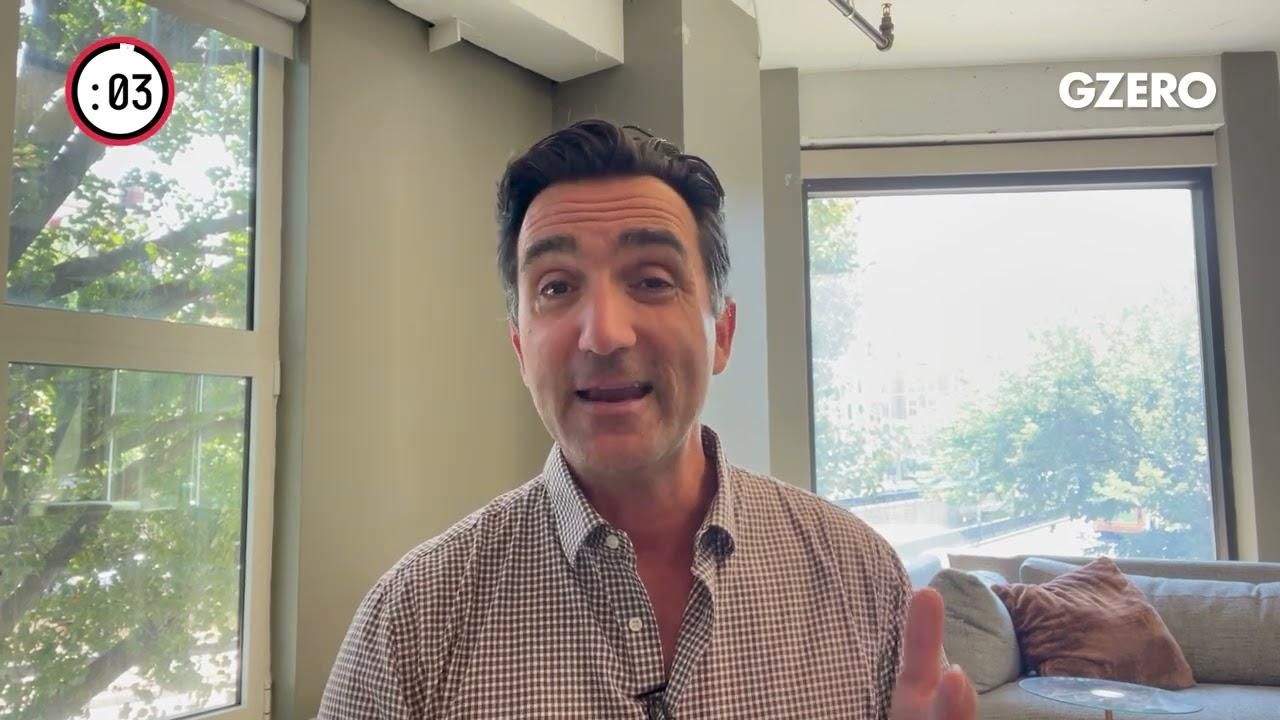US Politics In 60 Seconds
$10,000 in student loan forgiveness: what's the point?

$10,000 in Student Loan Forgiveness: What's the Point? | US Politics | GZERO Media

Jon Lieber, head of Eurasia Group's coverage of political and policy developments in Washington, DC, shares his analysis on US politics.
Today's question, $10,000 in student loan forgiveness: what's the point?
President Biden is going to announce up to $10,000 in student loan forgiveness for people making up to $125,000 a year. This is far short of the full student loan forgiveness that progressive activists have been calling for and even short of the $50,000 that Democratic leaders had embraced and Biden was considering earlier in the year. Still, the forgiveness is estimated to provide at least some relief for the vast majority of the 40 million Americans with student loans and will entirely wipe out the obligations of up to 15 million Americans.
Biden was very slow and hesitant to make this call, struggling with the issues of fairness. Millions of Americans who have paid off their loans or benefited from their parent's savings, sometimes at great personal cost, will receive nothing from this plan. And it is estimated to cost the federal government over $300 billion, wiping out entirely the savings from the recently passed Inflation Reduction Act. It could also be challenged legally, as there has been no explicit congressional authorization to forgive the debt. And it is Congress, not the executive branch, who controls spending. Politically, there is risk of some backlash, as Republicans see the chance to point out that taxpayers are subsidizing the borrowing of college educated Americans who tend to have higher lifetime incomes and better job opportunities. But for progressive activists and young voters, these concerns do not resonate, given that they think education should be a right that is fully funded by the government.
One issue that Biden is unlikely to address is the rising cost of a college education, which has massively outpaced inflation over the last several decades, partially driven by federal subsidies that support it. The move also introduces moral hazard that could increase future borrowing on the expectation that there will be more rounds of student loan forgiveness under future Democratic administrations. Politically, this is likely to be very popular with young voters who will disproportionately benefit from the forgiveness and get a mixed reaction from other Americans who are largely divided on the issue of student loan relief. Unfortunately for Democrats, young voters are some of the least reliable voters, and Democrats are hoping that this issue activates their base in November. Even if the forgiveness falls far short of what progressive access activists were hoping for.
Tune in on Saturday, February 14th at 12pm ET/6pm CET for the live premiere of our Global Stage from the 2026 Munich Security Conference, where our panel of experts takes aim at the latest global security challenges.
Think you know what's going on around the world? Here's your chance to prove it.
At the Munich Security Conference, the mood is clear: Europe no longer assumes the United States will lead. In this Quick Take, Ian Bremmer reports from Munich, where this year’s theme, “Under Destruction,” reflects growing anxiety that the US itself is destabilizing the transatlantic alliance it once anchored.
Every year, the Munich Security Conference, the world’s leading forum on international security, releases data that sheds light on how citizens view global risks.